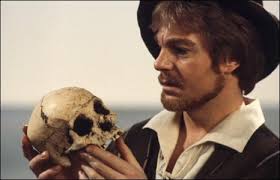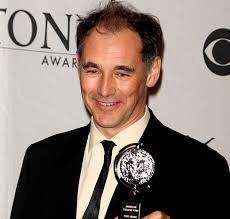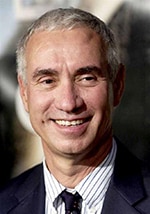From time to time, the Shakespeare Oxford Fellowship recognizes persons of national or international renown in any field of endeavor, who bring special luster to the Oxfordian movement and the Shakespeare authorship question, as Honorary Trustees. These outstanding individuals — all authorship skeptics, though not in all cases convinced Oxfordians — have been selected and have graciously accepted this honor.
Sir Derek Jacobi
 Sir Derek Jacobi is widely regarded as one of the most accomplished Shakespearean actors of our time. His myriad stage roles have included Cyrano de Bergerac, Uncle Vanya, Adolf Hitler, Oedipus Rex, and a slew of Shakespearean heroes and antiheroes. Jacobi has won two Olivier Awards (for the title role in Cyrano de Bergerac and Malvolio in Twelfth Night), a Tony Award (for Much Ado About Nothing), two Evening Standard British Film Awards for Best Actor (for Little Dorrit and Love is the Devil), and the Helen Hayes Tribute for Lifetime Achievement. Jacobi was knighted in 1994. He is perhaps best known for his stunning performance in the title role of the award-winning I, Claudius (1977), one of several miniseries in which he has starred. He won the British Academy of Film and Television Arts (BAFTA) Award for I, Claudius and has won two American Emmy Awards, one of them for playing a bad Shakespearean actor in an episode of Frasier.
Sir Derek Jacobi is widely regarded as one of the most accomplished Shakespearean actors of our time. His myriad stage roles have included Cyrano de Bergerac, Uncle Vanya, Adolf Hitler, Oedipus Rex, and a slew of Shakespearean heroes and antiheroes. Jacobi has won two Olivier Awards (for the title role in Cyrano de Bergerac and Malvolio in Twelfth Night), a Tony Award (for Much Ado About Nothing), two Evening Standard British Film Awards for Best Actor (for Little Dorrit and Love is the Devil), and the Helen Hayes Tribute for Lifetime Achievement. Jacobi was knighted in 1994. He is perhaps best known for his stunning performance in the title role of the award-winning I, Claudius (1977), one of several miniseries in which he has starred. He won the British Academy of Film and Television Arts (BAFTA) Award for I, Claudius and has won two American Emmy Awards, one of them for playing a bad Shakespearean actor in an episode of Frasier.
Jacobi’s dozens of film credits include collaborations with Laurence Olivier and Kenneth Branagh, and voiceovers for two documentary series by Ken Burns. He has appeared in such films as Henry V (1989), Dead Again (1991), Gladiator (2000), Gosford Park (2001), The Golden Compass (2007), and The King’s Speech (2010). During 1994–98, he won the affection of PBS audiences as Ellis Peters’s inquisitive monk in the eponymously titled Cadfael series.
In 1999, Jacobi received the Vero Nihil Verius Award for Artistic Excellence at the Shakespeare Authorship Studies Conference in Portland, Oregon, and shared his thoughts on the authorship question. Jacobi wrote a foreword to Mark Anderson’s 2005 biography of Edward de Vere (Earl of Oxford), “Shakespeare” by Another Name. Along with Mark Rylance, Jacobi initiated the Declaration of Reasonable Doubt on the authorship of Shakespeare’s work to encourage further research into the question. He appears in the authorship documentaries Last Will. & Testament (2012) and Nothing Is Truer Than Truth (2018). In April 2016, Jacobi and Sir Mark Rylance (see below) taped a reaffirmation of their authorship skepticism amidst the hoopla surrounding the 400th anniversary of the Stratford man’s death.
Jacobi’s interest in the authorship question goes back many years and was originally cultivated in conversations with the late Sir John Gielgud, a convinced Oxfordian.
Sir Mark Rylance
 Sir Mark Rylance was knighted in 2017 for his many contributions to theatre and the performing arts. He was the first Artistic Director of Shakespeare’s Globe, the reconstructed successor to the Elizabethan Globe Theatre, a post he held from 1995 to 2005. He is an actor, director, and playwright. He has won the Oscar for Best Supporting Actor in Steven Spielberg’s Bridge of Spies (2015); two Olivier Awards, for Much Ado About Nothing and Jerusalem; three Tony Awards, for Boeing Boeing, Jerusalem, and for playing Olivia (yes, Olivia) in Twelfth Night; and multiple British TV awards.
Sir Mark Rylance was knighted in 2017 for his many contributions to theatre and the performing arts. He was the first Artistic Director of Shakespeare’s Globe, the reconstructed successor to the Elizabethan Globe Theatre, a post he held from 1995 to 2005. He is an actor, director, and playwright. He has won the Oscar for Best Supporting Actor in Steven Spielberg’s Bridge of Spies (2015); two Olivier Awards, for Much Ado About Nothing and Jerusalem; three Tony Awards, for Boeing Boeing, Jerusalem, and for playing Olivia (yes, Olivia) in Twelfth Night; and multiple British TV awards.
Rylance’s many Shakespearean roles include Hamlet in an acclaimed Royal Shakespeare Company production in 1988 directed by Ron Daniels. The production toured Ireland and Britain for a year, then ran in Stratford-upon-Avon, where Rylance alternated Hamlet with Romeo in the production of Romeo and Juliet that inaugurated the rebuilt Swan Theatre in Stratford. Hamlet toured the United States for two years. Other Shakespearean roles include Ariel and Prospero in The Tempest (not in the same production), Touchstone in As You Like It, Olivia in Twelfth Night, Macbeth, Richard II, Richard III, and Henry V. His films also include Prospero’s Books (1991), The Other Boleyn Girl (2008), and Dunkirk (2017).
In 2007, Rylance, along with Sir Derek Jacobi, unveiled the Declaration of Reasonable Doubt on the authorship of Shakespeare’s work after the final matinée of I Am Shakespeare, a play on the authorship question written by and starring Rylance. Rylance appeared in the film Anonymous as the Elizabethan-era actor who played Richard III and the Chorus in Henry V. He also appears in the authorship documentaries Much Ado About Something (2001), Last Will. & Testament (2012), and Nothing Is Truer Than Truth (2018). In April 2016, Rylance and Sir Derek Jacobi (see above) taped a reaffirmation of their authorship skepticism amidst the hoopla surrounding the 400th anniversary of the Stratford man’s death.
Michael York
 Michael York is well known to audiences all over the world as one of the most prolific and talented stage and screen actors of our day, having appeared in over 100 films, among them The Taming of the Shrew (1967), Romeo and Juliet (1968), The Guru (1969), Cabaret (1972), Logan’s Run (1976), Borstal Boy (2000), and the popular Austin Powers comedy action films (1997–2002). Audiences have long admired York’s versatility. With an impressive body of work on screen, stage, television, and audio recording over more than 50 years, this consummate performer still retains the fire for the actor’s life which first blazed when he was a teenager in England. York is also an accomplished writer and lecturer who has authored or co-authored several books. His book on performing Shakespeare, A Shakespearean Actor Prepares (2001), written with his longtime colleague, actor-director Adrian Brine, was praised by Spectator magazine as “a triumph … the most illuminating study of the dramatist since Granville Barker’s Prefaces. It deserves to become a classic.”
Michael York is well known to audiences all over the world as one of the most prolific and talented stage and screen actors of our day, having appeared in over 100 films, among them The Taming of the Shrew (1967), Romeo and Juliet (1968), The Guru (1969), Cabaret (1972), Logan’s Run (1976), Borstal Boy (2000), and the popular Austin Powers comedy action films (1997–2002). Audiences have long admired York’s versatility. With an impressive body of work on screen, stage, television, and audio recording over more than 50 years, this consummate performer still retains the fire for the actor’s life which first blazed when he was a teenager in England. York is also an accomplished writer and lecturer who has authored or co-authored several books. His book on performing Shakespeare, A Shakespearean Actor Prepares (2001), written with his longtime colleague, actor-director Adrian Brine, was praised by Spectator magazine as “a triumph … the most illuminating study of the dramatist since Granville Barker’s Prefaces. It deserves to become a classic.”
In this book, York declares his belief that Oxford was the true mind behind the Shakespearean canon: “Like other actors — Leslie Howard, Orson Welles, Charlie Chaplin — I have an instinctive feeling that there is something that does not quite add up. … The glorious renaissance mind revealed by the plays does not square with the crabbed, litigious personality of the Stratford claimant with his trivial, almost anonymous legacy of a few scrawled signatures, a second best bed and not one single book. Whereas Edward de Vere, the 17th Earl of Oxford, appears an ideal candidate.”
Roland Emmerich
 Roland Emmerich is a highly successful director, writer, and producer of visually exciting and imaginative motion pictures that have grossed billions of dollars worldwide, including Stargate (1994), Independence Day (1996), The Patriot (2000), The Day After Tomorrow (2004), 2012 (2009), Stonewall (2015), and Midway (2019). In 2011, he directed and produced Anonymous, bringing the story of Edward de Vere as Shakespeare to a wide global audience for the first time. Emmerich also supported the documentary Last Will. & Testament (2012).
Roland Emmerich is a highly successful director, writer, and producer of visually exciting and imaginative motion pictures that have grossed billions of dollars worldwide, including Stargate (1994), Independence Day (1996), The Patriot (2000), The Day After Tomorrow (2004), 2012 (2009), Stonewall (2015), and Midway (2019). In 2011, he directed and produced Anonymous, bringing the story of Edward de Vere as Shakespeare to a wide global audience for the first time. Emmerich also supported the documentary Last Will. & Testament (2012).
In his introductory essay in Anonymous: William Shakespeare Revealed (2011), Emmerich called the creation of Anonymous “the single greatest filmmaking experience of my life.” Though he knew little about the Shakespeare authorship question when he first encountered the original script by John Orloff (see below), he was attracted to the idea and immediately optioned the script. While noting that Orloff’s original idea “had a great emotional heart,” Emmerich wanted to film to be more like a Shakespearean tragedy and to represent the idea that the pen was mightier than the sword.
Regarding the experience of creating Anonymous, Emmerich wrote: “The only thing I was afraid of as a director was to put all these plays onto the stage we built for the film.” He built a full replica of the Rose theatre, which later became the Globe, and successfully staged key scenes from a variety of Shakespearean plays that delight the senses while vividly revealing the contemporary political context. Emmerich wrote: “It was an amazing feeling just to walk onto this set because one instantly understands why the magic of the public theatre was so transforming in the 16th century. It was the only public word at the time, delivered to the people without too much censorship. That’s where allegory triumphed, symbolically expressing deeper, often moral or political, meanings of things.”
Emmerich and Orloff have together created a magnificent, intellectually arresting film that is opening the eyes of many newcomers to the background and merits of the Shakespeare authorship question. As reviewer Betsy Sharkey said in the Los Angeles Times: “If the filmmakers have done nothing else, they have turned ‘the pen is mightier than the sword’ from mere axiom into action hero.”
John Orloff
 Screenwriter John Orloff worked relentlessly for 15 years to bring the story of Edward de Vere as Shakespeare to the screen, collaborating for eight of those years with Roland Emmerich (see above) on Anonymous (2011), starring Vanessa Redgrave, Rhys Ifans, Sir Derek Jacobi, Sir Mark Rylance, and David Thewlis. Orloff is best known as a writer for two episodes of the 2001 HBO miniseries Band of Brothers, which won him a Christopher Award and an Emmy nomination for Outstanding Writing for a Miniseries, Movie, or Dramatic Special. He also wrote the screenplay for A Mighty Heart (2007), which earned him an Independent Spirit Award nomination for Best First Screenplay.
Screenwriter John Orloff worked relentlessly for 15 years to bring the story of Edward de Vere as Shakespeare to the screen, collaborating for eight of those years with Roland Emmerich (see above) on Anonymous (2011), starring Vanessa Redgrave, Rhys Ifans, Sir Derek Jacobi, Sir Mark Rylance, and David Thewlis. Orloff is best known as a writer for two episodes of the 2001 HBO miniseries Band of Brothers, which won him a Christopher Award and an Emmy nomination for Outstanding Writing for a Miniseries, Movie, or Dramatic Special. He also wrote the screenplay for A Mighty Heart (2007), which earned him an Independent Spirit Award nomination for Best First Screenplay.
Orloff became interested in the authorship debate after watching the 1989 Frontline program about the controversy. He wrote his first draft in the late 1990s as a romance, The Soul of the Age, which Emmerich optioned in 2001. The relationships of the three central characters in Soul of the Age (Ben Jonson, Will Shakspere, and Edward de Vere) remained the heart of the movie, although with Emmerich’s vision the tone changed to tragedy, the name to Anonymous, and the overriding issue to the struggle over who would succeed Queen Elizabeth I to the throne of England.
Orloff has become an articulate spokesman for the Shakespeare authorship question, participating in online and in-person debates. For example, in the Guardian on October 27, 2011, in response to criticism by Professor James Shapiro and others, Orloff wrote: “Mr. Shapiro need not defend William Shakespeare the man, but professional Shakespearean scholarship itself. Because once one begins to ask the tough questions, Shakespearean scholarship is revealed to be the very thing Shapiro claims to despise most: guesswork, assumption and conjecture. Unlike Mr. Shapiro, I am not afraid of the next generation exploring the Shakespeare Authorship Question and coming to its own conclusion — whatever that may be.”


